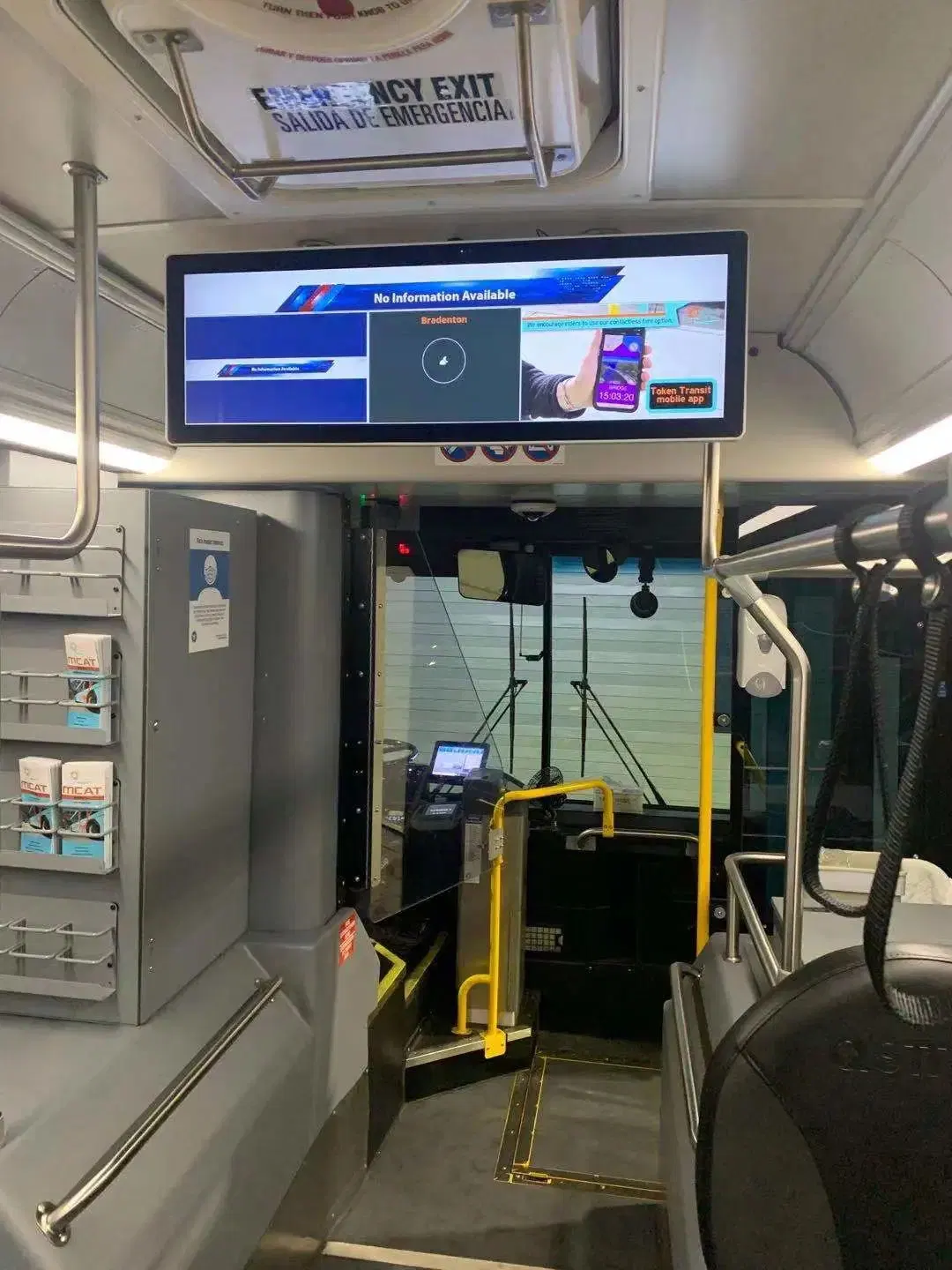Long dwell-time
Transit advertising leverages the extended time commuters spend on public transportation. Whether it’s a long bus ride or waiting for a train, individuals have plenty of time to view and absorb ads, boosting brand recall and campaign effectiveness. Commuters often face delays and lengthy waits, creating multiple touchpoint opportunities. According to Statistics Canada, the average daily public transit commute time was 42.9 minutes in 2021. In dense urban cities around the world, like New York City or London, these averages can be even higher.

Risingstar 37-inch passenger information display on the bus
Cost-effectiveness
With its extensive reach and visibility, transit advertising is an efficient and cost-effective way to target audiences. A 2022 Solomon Partners study found that transit shelters had the lowest estimated median CPM (cost per thousand impressions) among all surveyed media options, at just $2.18 per 1,000 impressions. Additionally, the ability to tailor transit campaigns to specific routes and timeframes allows businesses to optimize their spending and achieve a higher return on investment (ROI). By placing ads in high-traffic areas and during peak travel times, advertisers can ensure their messages reach a broad and diverse audience, driving brand awareness and engagement.
Consistent reach, frequency, and adaptability
Most transit methods follow the same daily routes, particularly buses, trains, and subways. This provides opportunities for repeated exposure, increasing the likelihood of audiences recalling your ad. Digital screens, like those common on bus shelters or transit terminals, offer increased flexibility where ads can be adjusted to reflect conditions like time of day, weather, traffic updates, transit schedules, and more. This adaptability allows for more targeted and relevant messaging, enhancing the campaign’s overall effectiveness. Interactive content can further engage commuters, like scanning QR codes for exclusive offers or information.
Geographic & community targeting
Transit ads are highly effective for geographic and community targeting and engagement. By placing ads on specific transit routes in neighborhoods, businesses can target local audiences and tailor their messages to resonate with community interests and needs. Advertisers can also leverage creatives in different languages depending on the neighborhoods, ensuring messages are culturally relevant and accessible. This localized approach fosters a sense of connection by featuring local events, services, or cultural themes, building stronger ties between brands and the communities they serve.
For more information please contact us via the website or send email to: info@risinglcd.com
Ask a quote for the latest price and one of our team members will respond as soon as possible.
